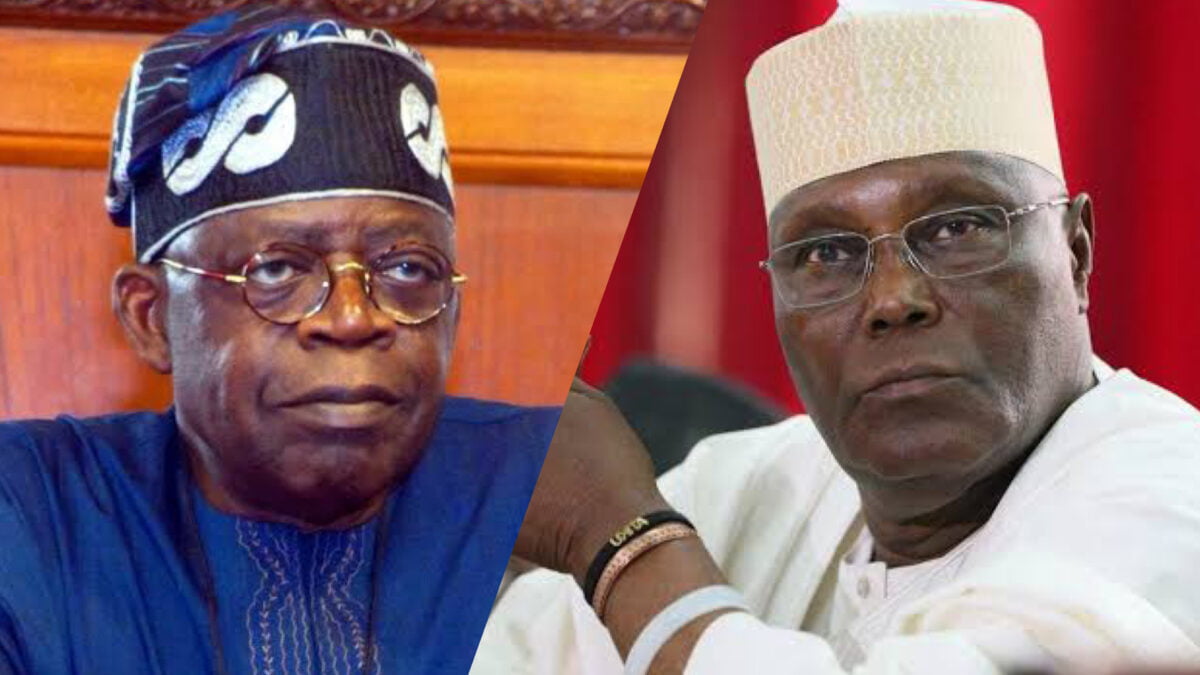The presidential candidate of the Peoples Democratic Party, Atiku Abubakar, has filed a fresh motion urging the United States Court to overrule President Bola Tinubu’s request to stop Chicago State University from releasing his (Tinubu’s) academic record.
The reports that Atiku had earlier secured an order from a US magistrate for CSU to make Tinubu’s academic records available to his legal team.
The magistrate, Jeffrey Gilbert, had last week ordered Tinubu’s alma mater to provide all relevant and non-privileged documents to Atiku’s legal team within two days.
Atiku is currently challenging Tinubu’s emergence as the winner of the February 25 presidential election.
The matter is currently before the Supreme Court in Nigeria.
The documents sought by the PDP candidate, through his counsel, Angela Liu, include Tinubu’s record of admission and acceptance at the Chicago State University, dates of attendance as well the degrees, awards, and honours obtained by Tinubu from the CSU.
But as the deadline given by the magistrate drew nearer, Tinubu’s lawyers approached the US high court, arguing that the earlier decision by the magistrate needed to be reviewed by a district judge.
The request for a review and delay of the magistrate’s order till Monday was eventually granted by the US district judge.
Tinubu’s application, filed by his New York-based lawyer, Oluwole Afolabi, advanced two reasons.
First is that his academic records in issue are not useful in Nigerian courts as claimed by Atiku because “the Nigerian election proceedings and the Nigerian courts have explicitly been unreceptive to the discovery.”
But Atiku, in a fresh response filed on Wednesday, in Chicago, Illinois, urged the court to overrule Tinubu’s request in its entirety.
Atiku’s counsel, Angela Liu, appealed that “If the court overrules the objections, the applicant respectfully requests that it enter an order requiring production of documents no later than October 2, 2023, and the deposition scheduled no later than October 3, to allow time for transcripts to be finalised, and the discovery obtained to be sent to Nigeria (which is six hours ahead) by October 4, so that such evidence may, in turn, be filed with the Supreme Court by October 5, which is when applicant’s Nigerian counsel intend to submit any new evidence to the Supreme Court.”
Atiku’s lawyer explained that contrary to Tinubu’s “inflated rhetoric”, he is not seeking “to conduct a fishing expedition into Tinubu’s private, confidential, and protected educational records.”
The former Vice President declared that his goal is to test the authenticity and origin of 12 pages of documents, including two very different diplomas, that purport to have been issued by CSU.
Atiku maintained that there were discrepancies between the information in the CSU documents and the information in the affidavit Tinubu submitted to INEC.
“If, as the intervenor asserts, he graduated from CSU in 1979 and the CSU documents are authentic copies issued, there is no reason why he should oppose the limited discovery the applicant seeks.”
Atiku’s legal team argued that the fact that the Nigerian Electoral Act specifically allows for the submission of new evidence to the Supreme Court in exceptional circumstances demonstrates its receptivity to the evidence sought.
The former vice president clarified that is not seeking the disclosure of Tinubu’s educational documents; he is seeking to authenticate documents that are already in the public record, adding that “Judge Gilbert’s Order may only be reviewed for clear error, even if the Court determines to the objections should nonetheless be overruled in their entirety.”






2 Comments